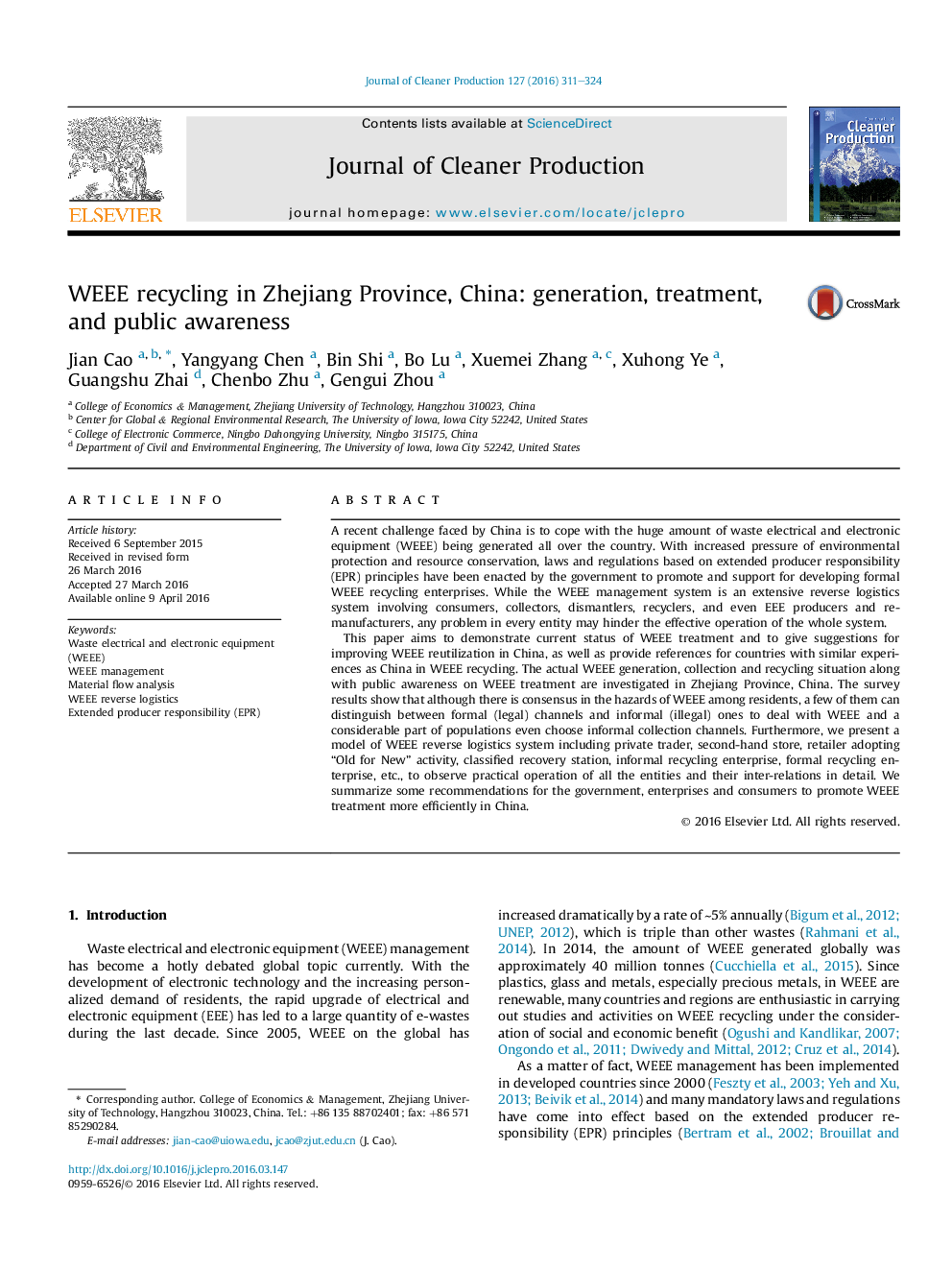| کد مقاله | کد نشریه | سال انتشار | مقاله انگلیسی | نسخه تمام متن |
|---|---|---|---|---|
| 1744089 | 1522122 | 2016 | 14 صفحه PDF | دانلود رایگان |

• WEEE generation is estimated to increase annually in China in the future.
• People's environmental awareness and their treatment on WEEE are researched.
• WEEE collection and recycling situation in Zhejiang are surveyed.
• Entities with their interrelations of WEEE reverse logistics system are investigated.
• Recommendations are proposed to promote WEEE management more effectively.
A recent challenge faced by China is to cope with the huge amount of waste electrical and electronic equipment (WEEE) being generated all over the country. With increased pressure of environmental protection and resource conservation, laws and regulations based on extended producer responsibility (EPR) principles have been enacted by the government to promote and support for developing formal WEEE recycling enterprises. While the WEEE management system is an extensive reverse logistics system involving consumers, collectors, dismantlers, recyclers, and even EEE producers and remanufacturers, any problem in every entity may hinder the effective operation of the whole system.This paper aims to demonstrate current status of WEEE treatment and to give suggestions for improving WEEE reutilization in China, as well as provide references for countries with similar experiences as China in WEEE recycling. The actual WEEE generation, collection and recycling situation along with public awareness on WEEE treatment are investigated in Zhejiang Province, China. The survey results show that although there is consensus in the hazards of WEEE among residents, a few of them can distinguish between formal (legal) channels and informal (illegal) ones to deal with WEEE and a considerable part of populations even choose informal collection channels. Furthermore, we present a model of WEEE reverse logistics system including private trader, second-hand store, retailer adopting “Old for New” activity, classified recovery station, informal recycling enterprise, formal recycling enterprise, etc., to observe practical operation of all the entities and their inter-relations in detail. We summarize some recommendations for the government, enterprises and consumers to promote WEEE treatment more efficiently in China.
Journal: Journal of Cleaner Production - Volume 127, 20 July 2016, Pages 311–324